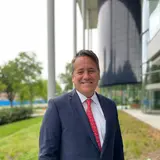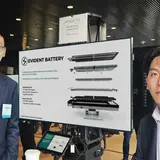
Startup Stories: Converting Snorkel Masks into Protective Gear for Healthcare Workers
In this series, we talk to student and alumni entrepreneurs about how they are making an impact with their startups.
Venture: MasksOn.org is a nonprofit initiative that generates low-cost, high-quality protective gear for healthcare workers at the front line of the COVID-19 pandemic. Specifically, the organization has built durable, reusable personal protective equipment (PPE) by adding adapters to full-face snorkel equipment so that the masks can be fitted with hospital-grade filters.
Co-Founder: Christian Lewis ’21
What was the moment when you had the idea for this startup?
The idea for this startup came from two doctors at Brigham and Women’s Hospital in Boston and a product manager at Google in the last week of March 2020. They reached out to me to help build up the fundraising, financial administration, and public relations capabilities.
The first step was recruiting like mad, pulling in anyone with expertise and a bit of free time who could help us source snorkel masks from manufacturers; rapidly prototype, design, and build thousands of adapters; scale production with injection mold manufacturing techniques; and bring testing safety to the absolute highest possible standards on an extremely compressed timeline.
What’s the problem you’re trying to solve or the gap that you’re trying to fill?
COVID-19 continues to overwhelm health systems across the world, creating a dire shortage of the personal protective equipment (PPE) that keeps frontline healthcare providers safe. Many doctors, nurses, and hospital staff have been forced to rely on donations, crowdsourcing, and the ever-trending #GetMePPE to attain the basic equipment needed to help their patients.
We’ve always believed MasksOn.org would be a stopgap measure—a finger in the dike to get through the peak of the PPE shortage crisis until the supply chain caught up—after which we’ll all go on to our day jobs, and I’ll start a summer internship. Seven weeks ago, we hoped supply chains would catch up by about now, or, in the worst case, toward the end of May. Unfortunately, from what we are seeing and hearing from the thousands of clinicians who have requested and received our reusable face shields across every state and the Indian Health Service, there is no clear end to the crisis in sight.
Instead, in a recurring COVID-19 theme being played out across so many social and economic arenas, we are seeing a story of haves and have-nots. The supply of PPE is being arbitrated through an unregulated marketplace through which every individual care system, whether a hospital network, nursing home, or small dentistry practice, is bidding against every other—as well against state and local governments, various federal agencies, and groups that are profiteering. Not surprisingly, wealthy buyers are securing the lion’s share of supplies, whereas poorer groups find themselves shut out.
Considering the challenges the U.S. has faced in making widespread testing available, we believe that extreme PPE shortages will persist for many weeks to come and that even as the total quantity of produced and imported PPE rises, much of that equipment may end up stockpiled in places far from the newest outbreaks. And this situation may be further exacerbated as hospitals return to performing the millions of surgeries that were postponed during the past several weeks. We know that our mission is far from complete based on the continuing and often heartbreaking requests we are receiving every day.
What was the most important resource Yale SOM contributed to your startup?
In the course of rapidly scaling this project, I’ve used management practices and models from quite literally every one of my core classes—from Modeling Managerial Decisions and Sourcing and Managing Funds to Operations Engine and Customer—it’s all helped me find and close gaps in our strategy and accommodate the incredible pace of our endeavor. Even when I can’t solve a problem alone (which happens every day!) these tools have given me the situational awareness to know what kind of expertise I need, and the vocabulary to ask for it.
In addition, I knew I had an extraordinary resource available in my classmates. One of the first people I reached out to was David Dupee ’21, a joint-degree student at Yale SOM and Yale School of Medicine, who roped in a few other Yale teammates to work on everything from project management to engineering and design. (I believe he also received some personnel recommendations from Howard Forman, among other faculty.) David then helped build inroads to Yale New Haven Hospital, where we’ve since been able to get our product into the hands of clinicians.
What’s the biggest milestone your startup has hit?
In about six weeks we’ve raised $2 million on the way to our goal of $5 million (since $5 million puts 100,000 reusable face shields in the hands of frontline clinicians). We’ve also received more than 30,000 masks at our production facility in Haverhill, Massachusetts, and we delivered 7,000 reusable face shields to frontline healthcare workers at more than 250 institutions in 41 states and to the Indian Health Services.
One of the most important achievements of our project, to me, was the appointment of an ethics panel to review the decisions we were making about allocation and distribution. Given the economics of PPE scarcity, we needed to think through a lot of difficult hypotheticals and contingencies that we thought might arise related to our allocation of face shields. Did we want to sell masks if it would help us make more of them in the long run? What if a foundation wants to donate, but insists on masks being shipped to specific hospitals? Given all the distortions in the marketplace right now, we decided to deliver all masks completely free of charge on a first-come-first-served basis, and I feel very good about our choices.
Looking ahead, one of the most important upcoming milestones relates to ongoing discussions we’re in with the FDA to secure authorizations for more uses, since their blessing will make it even easier for hospital administrators to accept our donated goods at scale.



